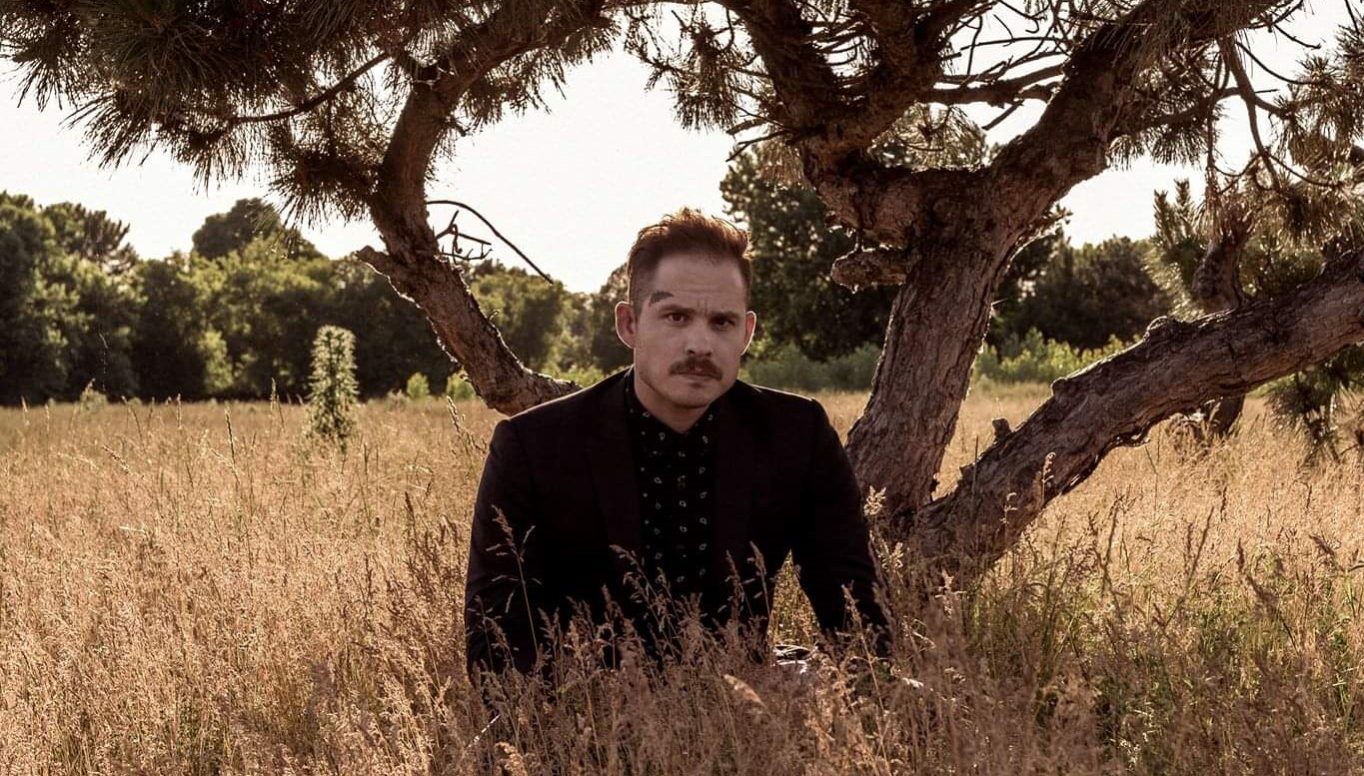The Reclamation of Michael C. Duguay

Over five years since he last toured with Evening Hymns, wrote a song, or recorded new music, Michael C. Duguay has returned to the Canadian music scene with momentum and new material.
Now based in Kingston, the multi-instrumentalist, songwriter and composer has assembled supporting musicians for his live band and skilled players to start recording The Winter of our Discotheque, a full-length album coming in 2019. His old friend Jonas Bonnetta (Evening Hymns) is producing the record at Port William Sound, his rural studio in Mountain Grove, about 100 kilometres south-west of Ottawa.
Duguay is on tour and performing two concerts in Ottawa this weekend: 2pm on Saturday at The Record Centre and again at 8pm on Sunday evening at Pressed with special guest Paper Beat Scissors.
We reached Michael a day before his tour begins in Kingston. This interview has been edited for clarity and length.
Interview
Ottawa Showbox: After your break from music, what prompted you to come back? Was there a specific moment that clicked? Or was it more of an accident?
Michael C. Duguay: It has certainly been no accident.
I experienced a relative amount of loss over the course of a few disastrous years, not the least of which was a sort of loss of identity, including but not limited to my identity as an artist and musician. I became increasingly self-conscious of referring to myself, my career, and my work in a past tense, while scrambling to find social, professional, and emotional footing in a new community. I tried on a few different professional hats, including returning to my work as a chef, none of which fit very comfortably. There was clearly something missing from my life.
I have a very close relationship with my twin sister, Dany, and I was reaching out to her once or twice a week seeking advice on new and half-baked career ideas. After tolerating this for a while, she responded by insisting that I return to music. She encouraged me to try doing what makes me most happy in life again. So that played a serious role in my return, and in a real way the process has been a reclamation of a very essential lost sense of self.
A moment that I can directly pinpoint as the real catalyst was attending a Jeff Tweedy concert in Kingston with my friend Jonas Bonnetta, who is producing my new album. While I was inspired by Jeff’s work… he’s an incredible artist… I was equally motivated by my conversation with Jonas before and after the concert. Jonas is a peer, friend, and mentor of sorts, who has helped me redefine my understanding of success, both in the world of professional music as well as life in general. Quite simply, taking in a great concert with a dear old music friend, who I hadn’t seen in ages, triggered some really warm memories on the best side of the minutiae of a former lifestyle. Made me realize a large part of what I had been missing out.
I’m extremely grateful to Jonas for that night. I promised him I would write a song—unprovoked, I don’t think he asked me to—and I did the following day, for the first time in over half a decade.
What is the meaning of The Winter of our Discotheque?
The title is actually a name of a song on the album, which refers pretty explicitly to both the Steinbeck novel, The Winter of Our Discontent, and the Shakespearean passage from Richard III it draws its name from. Steinbeck’s novel is an exploration of the moral degradation one can experience in the pursuit of reclaiming lost power and social class, and the persistent denial of wrongdoing, guilt, or vulnerability to the world’s evils throughout this pursuit.
The discotheque imagery in my title refers directly to the winter that I worked as a manager and DJ at a nightclub in Peterborough, in my final year in my hometown. That I can really pinpoint as the time that I turned myself pretty willingly down the wrong path in life, despite the advice of my close friends and family; where I began to abandon music as a composer and performer, while maintaining at least outwardly that I was in control and knew what I was doing. I was trying in vain to reposition myself in a community where I mistakenly believed I had lost my place, and I was causing a lot of collateral damage.
So, the song, and that album, is, in essence, an exploration of that time, as well as my life now where I am attempting something similar, but with a bit of a clearer head and a desire to tread much more lightly; and the tremendous amount of painful and traumatic stuff, as well as some of the really inspiring and joyous experiences, that happened in between.
Is this album different from Heavy on the Glory?
Aside from my involvement in both, I can’t or won’t really compare the two. They’re respectively born out of such different times, and momentums, and personalities, and ideas, and practices.
In what way?
Heavy on the Glory is extremely special to me. The bulk of it was recorded over the course of the summer months of 2010 with a very large group of my closest friends at the time. The producer, James Bunton, lived in the makeshift studio we put up in my living room almost the entire time. All of my roommates appear on the album, as do most of my neighbours. On a few occasions, we grabbed musicians we had never met before from local bars after their sets to come over for 3 a.m. recording sessions. It was an extremely fun time, we all partied a lot, and there was a lot of love and joy in the air, and we all worked really hard, especially Jamie. I know that we all remember that specific time really fondly.
How or why has the music evolved?
Musically, this practice is pretty obvious on that record, and the title basically refers to it. My ethos was, essentially, push each moment of that record to its limit with a wall of sound approach. The question I asked most throughout was “how do we make this more epic?”
So it was extraordinarily fun, and the players involved were incredible, and I wouldn’t trade it for the world—but I would never take that approach with a recording again. In almost every way, I’ve settled down in life and I suppose my definition of “epic” in the context of music and songwriting has changed as well. I would much sooner excite a listener with a beautifully crafted, evocative lyric, than with 18 violins performing simultaneously. Occasionally, I still have the instinct to over-arrange, but Jonas is very good at reigning me in.
Who is involved in the project so far?
The band takes a variety of shapes. The same interest that I had in heavy collaboration when we produced Heavy on the Glory still exists, and I’ve yet to perform this new project with the same band twice.
While it calls for a lot of rehearsal, it keeps me incredibly engaged and, I find, serves the songs in their development. I was discussing with Michael Broadhead last night, who has been providing live and studio bass for the project, how the ideal band, for me, draws from a broad circle of skilled supporting players and neither suffers nor lacks in anybody’s absence, but which also doesn’t become unstructured, messy, or overindulgent if we’re to all perform in unison.
As for the studio, the core group thus far has been myself, Jonas, Liam Cole, and Julien Dussault from Ottawa. Michael Broadhead provided the bass parts, as mentioned, and a few other session players have been involved.
You’re on tour this fall, what cities are you most excited to spend time and play music in?
Truthfully, I’m just excited to tour—it’s been so long. The venue I’m performing at in Montreal is actually in the same building that my ex-partner lived in while she studied there, and where I actually composed a couple of songs on HOTG, so that will be a cool vibe. I’m really eager to spend some time in Ottawa where I’ve been developing a great group of friends and collaborators.
I’m really just excited to get in the van with Liam, listen to records, make some new friends, see some old ones, and live in the moment. This is what I want to be doing again, and I’m really grateful to be doing it.
How is the music community in Kingston where you live?
I’ve found it extremely supportive and positive thus far. Before I connected with it as a performer and active member, I’ll admit that I had difficulty understanding the cohesion in it. But in the moment that I reached out, and asked to be involved, I was both immediately accepted and supported, and the scene began to make sense as an, albeit complex, mostly unified force.
Michael C. Duguay is playing two concerts in Ottawa this weekend. On Saturday, October 27 at The Record Centre (1099 Wellington St West) and on Sunday, October 28 at Pressed (750 Gladstone Ave) with special guest Paper Beat Scissors.
